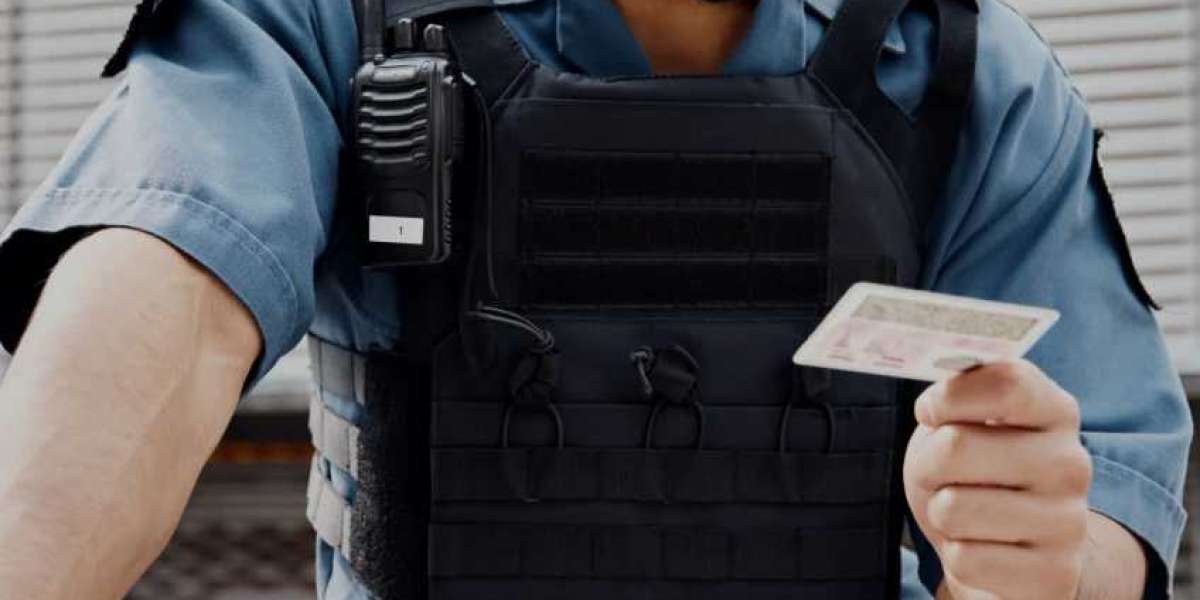Dubai’s security sector operates under the watchful eye of SIRA, the Security Industry Regulatory Agency. For anyone running or planning to start a security company in Dubai, navigating licensing and compliance is not optional—it's foundational. This article breaks down what SIRA requires, how the process unfolds, and practical steps to stay compliant without slowing your business.
What SIRA regulates and why licensing matters
SIRA governs private security providers, guards, training facilities, and related service offerings in Dubai. The agency sets standards for licensing, training quality, equipment, and personnel conduct. A valid SIRA license signals to clients, insurers, and authorities that your operation adheres to the city’s safety and professional norms. Without it, you risk fines, restricted activity, or even shutdowns. The compliance framework also protects workers by ensuring they meet baseline training and qualification requirements.
For a security company in Dubai, licensing isn’t a one‑off hurdle. It’s a proxy for ongoing governance. Licenses must be renewed, staff records kept up to date, and procedures documented. In practice, a compliant outfit runs background checks, maintains training logs, and follows clear incident-reporting pathways. Those habits translate into fewer disruptions and smoother client onboarding.
Key license types under SIRA
Dubai offers a few license tracks, each aligning with different security roles. The right path depends on your service scope, assets, and client needs. Below are the core categories you’ll encounter when planning your security operations.
- Guarding services license: For armed or unarmed security personnel deployed on client sites.
- Training organization license: For firms delivering security training, exams, and certification programs.
- Equipment and systems license: For providers selling or leasing security hardware such as CCTV, access control, or alarm systems.
- Consulting and risk assessment license: For firms offering security audits, vulnerability assessments, and advisory services.
Each category has its own prerequisites, staffing ratios, and facility standards. A company may hold more than one license if it operates across multiple service lines, but each license requires separate approvals, inspections, and renewals.
Practical steps to obtain a SIRA license
Starting from first principles, the licensing journey can be mapped into a clear sequence. The aim is to demonstrate capability, reliability, and compliance readiness. Here is a practical, stepwise approach you can follow.
- Define your service scope: Decide whether you’ll offer guarding, training, equipment, or advisory services. This choice determines the exact license path and required facilities.
- Prepare a compliant business setup: Register the company, secure a physical office or training premises, and establish governance processes that align with SIRA expectations.
- Appoint qualified personnel: Hire licensed security professionals or trainers who meet Dubai’s minimum qualification standards. Gather CVs, certifications, and clearance documents.
- Develop procedures and records: Create incident reporting, training logs, equipment maintenance schedules, and client onboarding protocols. Digital records are preferred for traceability.
- Submit mandatory documents: Complete the SIRA application with business licenses, facility proof, staff qualifications, and any industry certifications. Include fee payments and a clear scope of operations.
- Undergo inspections and compliance checks: SIRA may inspect facilities, review training facilities, and verify staffing levels. Respond promptly to any findings.
- Receive license approval and implement: Upon approval, deploy trained personnel and begin client work only under the licensed scope. Prepare for periodic renewals.
As you move through these steps, prioritize clarity and accuracy in every submission. A small mismatch between the stated scope and actual operations can trigger delays or a license hold.
Compliance requirements you’ll need to meet
Licensing is the doorway; ongoing compliance keeps the door open. Key areas to manage include personnel, training, incident handling, and equipment standards. Staying ahead of these basics makes renewal easier and client projects more seamless.
- Personnel: Maintain records of guards’ licenses, background checks, and fit-for-duty assessments. Ensure supervisors hold current qualifications and that any changes in staffing are reflected in real time.
- Training: Adhere to SIRA-approved training curricula, maintain attendance logs, and track ongoing professional development. Refresher courses may be mandated on intervals set by SIRA guidelines.
- Licensing continuity: Monitor renewal dates, submit required documents ahead of expiry, and pay renewal fees. Keep a clean compliance calendar to avoid lapses.
- Equipment upkeep: Ensure all security hardware complies with standards, with maintenance schedules and calibration records. Documentation should include serial numbers, warranties, and service history.
- Operational governance: Maintain client contracts, incident reports, and escalation procedures. Demonstrate that your organization follows lawful and ethical practices at all times.
These requirements aren’t merely bureaucratic: they help safeguard clients, employees, and your business reputation. A disciplined approach reduces risk during audits and improves tender outcomes when bidding for large contracts.
Common pitfalls and how to avoid them
Even experienced operators trip over a few recurring issues. Being aware of these can save time and money. Below are practical examples and fixes built from real-world scenarios.
- Overstated service scope: Some firms aim to cover too many service lines at once. Start with a focused, compliant scope and expand only after solid performance and a clean compliance record.
- Incomplete staff documentation: Missing licenses or unverified qualifications stall approvals. Create a centralized document hub with automated reminders for renewals.
- Inadequate training records: If training logs are sparse, audits raise red flags. Use a digital training management system that timestamps completions and tracks recertifications.
- Facility nonconformities: Licenses hinge on proving valid premises. Ensure offices or training centers meet safety, accessibility, and equipment standards before applying.
- Poor incident reporting: Delayed or incomplete reports erode credibility. Implement standardized templates and assign responsibility for timely submissions.
Implementing proactive checks—weekly staff license verifications, monthly audits of training records, quarterly facility inspections—helps keep your operation audit-ready year round.
Best practices for security companies in Dubai
Beyond meeting minimum requirements, strong operators adopt habits that make compliance smoother and client relationships more durable. The following practices are widely adopted by compliant security teams.
- Embed a compliance owner: Designate a compliance manager responsible for licenses, renewals, and audit readiness. They become the single source of truth for SIRA-related matters.
- Digitize records: Move from paper to cloud-based systems for personnel files, training records, maintenance logs, and incident reports. Digital trails reduce errors and speed up reviews.
- Institute a client-first mindset: Design client onboarding around clear security scopes, response times, and reporting formats. Transparent processes build trust and improve renewals.
- Plan for renewal well in advance: Track expiry dates and prepare renewals months ahead. Include updated staff rosters and facility proofs to avoid last-minute scrambles.
- Engage with SIRA guidance: Keep an eye on official circulars and amendments. Proactively align policies with any changes in licensing requirements.
These strategies help any security operation not only survive audits but perform better in competitive markets where trust and compliance matter as much as capability.
Table: SIRA license types and typical requirements
Below is a concise snapshot of common license types, typical prerequisites, and renewal cues. Use this as a quick reference to align your planning.
| License Type | Typical Service | Key Requirements | Renewal Considerations |
|---|---|---|---|
| Guarding services | Unarmed or armed security personnel deployment | Qualified guards, facility for operations, background checks, insurance evidence | Annual renewal, updated personnel roster, ongoing training compliance |
| Training organization | Security training programs and certification | Approved curricula, qualified trainers, training center accreditation | Recertification of trainers, facility inspections for classrooms and labs |
| Equipment and systems | Sale or lease of CCTV, access control, alarm systems | Vendor licenses, maintenance capabilities, spare parts inventory | Periodic equipment calibration and maintenance logs |
| Consulting and risk assessment | Security audits, vulnerability assessments, advisory services | Consultant qualifications, methodologies, client agreements | Client project-based renewals and capability updates |
Table notes: Each license is tied to a defined scope. Any expansion requires a formal amendment and may trigger a new set of checks.
What to do next if you’re forming a new security company in Dubai
If you’re building from the ground up, start with a clean plan that aligns business goals with SIRA expectations. Consider these steps to get off the ground quickly and on solid footing.
- Map your service portfolio to SIRA categories, then select the primary license path.
- Lock in a physical address that satisfies regulatory space requirements for operations and training.
- Assemble a team with verifiable qualifications and clear reporting lines.
- Invest in a compliant document system that tracks licenses, trainings, and incident logs.
- Engage a regulatory consultant or legal advisor familiar with SIRA processes to review early submissions.
With these elements in place, your application moves faster, and your ongoing operations stay aligned with Dubai’s strict security standards. The payoff is a trustworthy platform for clients and a stable path through renewals each year.
Frequently asked questions about SIRA licensing
These quick answers cover common concerns for operators and aspiring entrants alike.
- How long does SIRA licensing take? The timeline varies by license type and completeness of documentation, but plan several weeks to a few months for first applications and sooner for renewals.
- Can a security company hold multiple licenses? Yes, but each license requires separate approvals, facilities, and ongoing compliance across all scopes.
- Is ongoing staff training mandatory? Yes. Training requirements are enforced to ensure personnel stay current with standards and client needs.
In summary, becoming and remaining a compliant security company in Dubai hinges on a clear scope, solid records, and disciplined governance. SIRA licensing is not a barrier when treated as a framework for reliability and accountability. With thoughtful planning and steady execution, your operation can serve clients effectively while meeting the highest regulatory standards.


